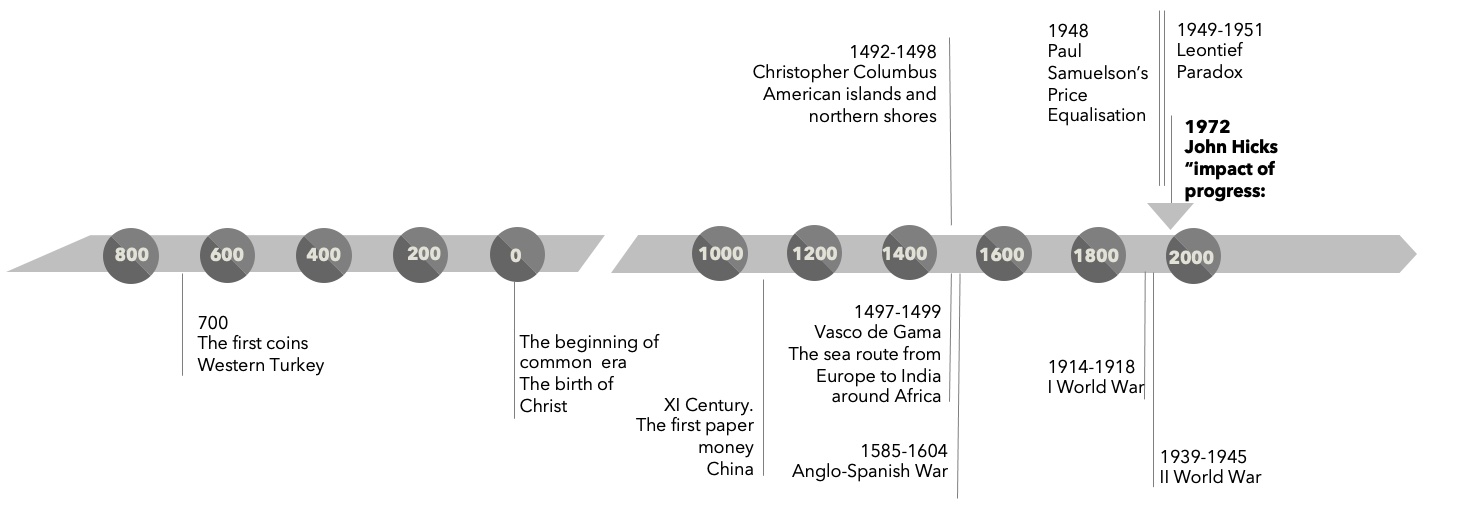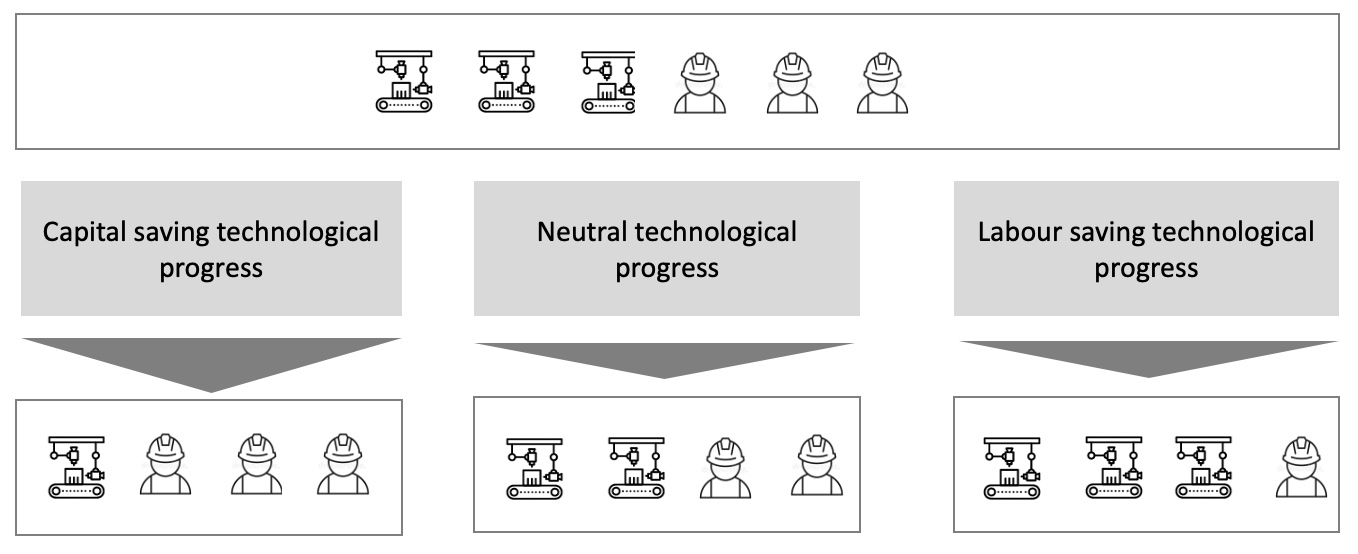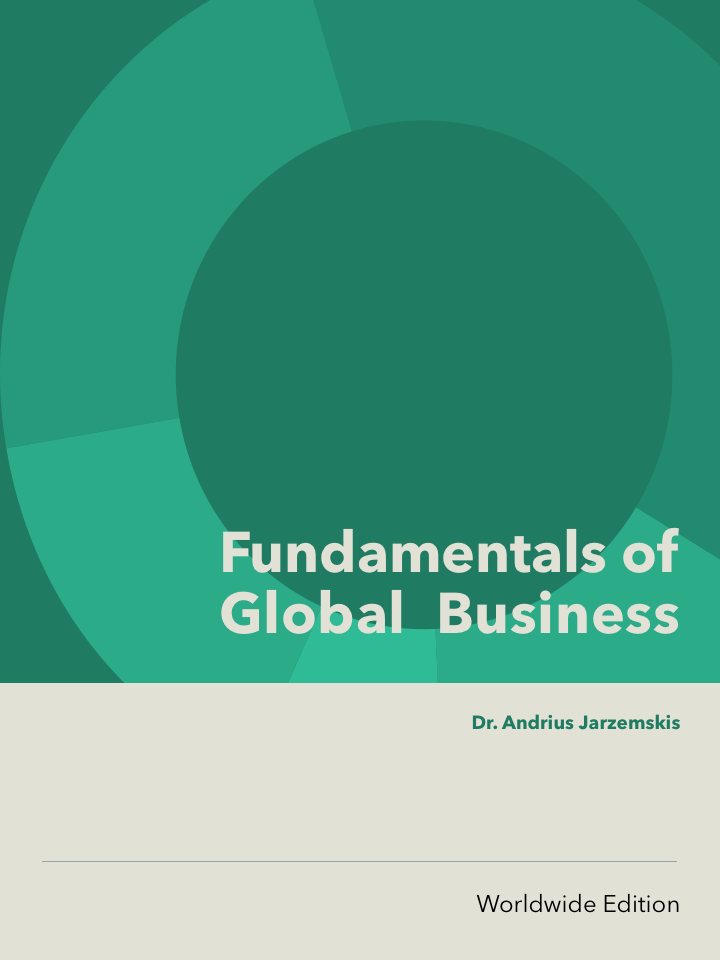John Hicks, a British economist, received the 1972 Nobel Prize in Economics for his work on the theory of progress. He formulated a theory that defined the types of technological advancement and their implications for capital and labour intensity. Scientist identified three types of technological progress – capital-saving, labour-saving and neutral.
Ex. 1‑26 John Hicks “impact of progress” in the context of other significant events
 Keywords: progress, labour factor, capital
Keywords: progress, labour factor, capital
Ex. 1‑27 Different types of progress and their impact on the capital-labour intensity ratio

Keywords: capital saving, labour saving
Empirical research by Hicks has shown that most of the increase in real per capita income in industrialised countries is due to technical progress and much less to capital accumulation. However, the analysis of technical progress is much more complex than the analysis of resource growth, as there are several definitions and types of technical progress, and they can occur at different rates in the production of one or both goods.
Share or comment this information on your social media:
Check Ebook

The paperback book is being prepared for publication. The electronic book will be available for purchase from September 2024.
A.1 Theories of international economics
- Mercantilism
- Adam Smith and Absolute Advantage
- David Ricardo and Comparative Advantage
- Standard Theory of International Trade
- Karl Marx and Communism
- Hekscher – Ohlin Theory
- Paul A Samuelson Theory
- Leontief Paradox
- Rybczynski Theory
- John Hicks and Progress
- Economies of Scale Theory
- Contemporary Business Internationalisation Theories
- Questions for Chapter Review
- Chapter Bibliography
About author
The author has been teaching at several universities since 2005. 40+ scientific publications, 10+ international research projects. More about author.